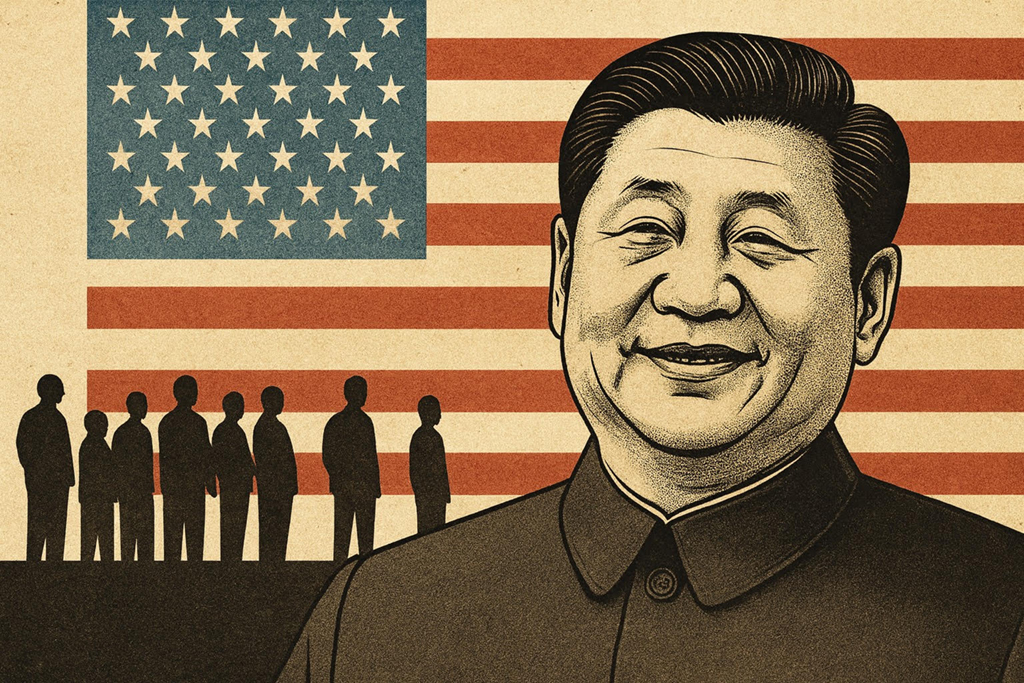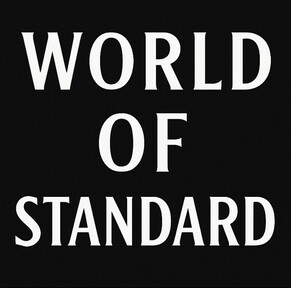StandardPrva analysis: The global competition between China and the USA and the implications for the world and the Balkans
13.09.2025The end of the twentieth and the beginning of the twenty-first century were marked by tectonic shifts in the global balance of power. After a period of undisputed American dominance following the Cold War, the world is gradually moving toward a “post-American” order, where the United States is no longer the sole center of influence. In such a multipolar environment, new powers are emerging – primarily China, but also Russia, India, Brazil, Turkey, and others – which are increasingly shaping the flows of international politics and economics. This trend does not necessarily mean a sudden decline of the USA, but rather the relative rise of other states seeking their place in the global order. In what follows, we analyze what characterizes this post-American world, through which mechanisms China, Russia, and similar powers build alternative structures, why many countries of the Global South welcome such a development, and what consequences all of this has for Europe and our region.
The end of American hegemony and an alternative order?
The concept of the post-American world implies an international system in which America is no longer the only superpower with undisputed hegemony. The decline of the USA’s relative influence became visible after the global financial crisis of 2008 – an event that shook confidence in the then-existing neoliberal order led by the West. At the same time, China, with its rapid economic growth and technological progress, demonstrated that liberal democracy is not the only path to success and development, thereby implicitly offering an alternative model of development. Beijing and Moscow increasingly advocate a multipolar world based on the sovereign equality of states and the non-imposition of political values from outside. Unlike the post-war order that promoted Western norms (democracy, human rights, free trade), in the new vision the emphasis is on alternative institutions and rules no longer written exclusively by Washington and Brussels.
A noticeable increase in coordination between powers such as China and Russia is evident – from joint military exercises, through aligned positions at the United Nations, to partnerships in technological and energy spheres – all aiming to challenge the monopoly of a single power in creating global rules.
Russia, for its part, seeks to regain influence lost with the dissolution of the USSR. Its confrontation with the West, culminating in open conflicts such as the one in Ukraine, is part of a broader effort to end the era of Western dominance. Moscow’s policy makes it clear that it refuses to accept a world order dominated by a single power center. China, on the other hand, through a more subtle but long-term approach, is building parallels to the institutions and norms of the Western order – creating a framework in which global power becomes more diffuse and shared among multiple centers.
China’s economic and technological influence
One of the most powerful tools of China’s rise is the Belt and Road Initiative (BRI). Launched in 2013, this massive infrastructure investment strategy connects Asia, Africa, and Europe through a network of new roads, railways, ports, and energy projects. The result is the creation of robust economic corridors that reduce dependence on traditional Western trade routes and financial centers. By 2025, more than 150 countries around the world had joined the BRI, attracting hundreds of billions of dollars in Chinese investments in development projects – from railways in Africa to ports in Southeast Asia. Through such investments, China not only expands its economic influence but also builds political ties: states participating in the project often become more inclined to support Chinese positions in international forums, thus creating a quiet but effective global network of allies.
Beyond infrastructure, technological development is another key field where the power shift is taking place. Over the past decade, China has become a world leader in sectors such as telecommunications (e.g., 5G networks), the digital economy, and artificial intelligence. Chinese companies like Huawei have built telecom infrastructure in many Asian, African, and even European countries, providing alternatives to Western suppliers. At the same time, South-South technology cooperation initiatives have enabled developing countries to exchange innovations and knowledge without relying solely on Western technologies. For example, Turkey exports combat drones to Asian and African countries, India launches satellites for other states, and Gulf countries invest in Asian tech start-ups. Such partnerships reduce the Global South’s dependence on the West in the field of technology and open the way for more independent development.
It is also important to note that the global economic balance is shifting: China is already the largest trading partner for most countries in the world, pushing the USA out of this position in many regions. This fact gives Beijing significant influence – countries that trade more with China will naturally listen more closely to its interests. A similar trend can be seen in the development of international financial institutions led by China, such as the Asian Infrastructure Investment Bank (AIIB) or the BRICS New Development Bank, which provide loans to developing countries without the strict conditions imposed by the IMF or the World Bank. In doing so, China and its partners aim to create parallel economic structures that reduce the previous dominance of the dollar and Western financial centers.
Multilateral blocs: BRICS, SCO, and new alliances
In addition to bilateral influences, new powers are also shaping the global order through multilateral blocs that operate outside the framework of Western alliances. A key example is the BRICS group – an alliance of five major emerging economies (Brazil, Russia, India, China, South Africa). Although BRICS was initially considered a loose political formation, over time it has consolidated into a more serious coalition seeking to redefine the economic rules of the game. Recent summits have resulted in plans for expanding membership and strengthening institutions: starting from 2024, BRICS will also include countries such as Saudi Arabia, Egypt, and Argentina, thus growing into an even broader alliance outside the Western club. This expansion of BRICS illustrates the desire of many states to join an alternative forum that brings them together on a more equal footing than they feel within institutions dominated by the G7. BRICS countries already make up a significant portion of the world economy and population, and through the New Development Bank finance infrastructure projects and discuss possibilities of trade outside the framework of the US dollar.
In parallel, there is the Shanghai Cooperation Organization (SCO), led by China and Russia, which brings together much of the Eurasian space (China, Russia, India, Pakistan, the Central Asian states, and recently Iran). The SCO focuses on security and political cooperation – joint counterterrorism efforts, military coordination, and building trust among members – all outside the umbrella of Western institutions. The existence of such blocs means that countries outside the traditional “West” have their own platforms for dialogue and cooperation where they can define shared interests. Similar initiatives are also visible in other contexts: the African Union has been admitted as a permanent participant in G20 summits, thanks to the advocacy of India and others, signaling the growing influence of Africa in global frameworks. Likewise, groups such as the G77 (bringing together over 130 developing countries) are increasingly demanding reforms in global governance, such as the expansion of the UN Security Council and a fairer distribution of voting power in the IMF and the World Bank, in order to reflect the new reality. All of this shows that the alternative global order is being built not only through the power of individual states, but also through new coalitions and institutions they create together.
The Global South: preferring multipolarity over hegemony
Why do many countries in Asia, Africa, and Latin America – the so-called Global South – prefer a multipolar world instead of the continuation of American hegemony? Primarily because of their own historical experiences and interests. Some of these states carry painful memories of colonialism and the Cold War, when they served as pawns in the games of great powers; therefore, the idea of a single dominant power evokes distrust. Multipolarity, on the other hand, promises them more room for maneuver: they can seek more favorable economic agreements, choose political allies as needed, and maintain greater autonomy in decision-making.
It is noticeable that many countries of the Global South have taken neutral or balancing stances in recent crises – refusing, for example, to impose sanctions on Russia despite Western pressure, in order to maintain good relations with both Moscow and Washington. A similar situation exists regarding the West’s rivalry with China: developing countries try to benefit from both sides, accepting Chinese investments and projects while still cooperating with the West when it suits them.
A key factor is also economic benefit without political conditionality. Unlike Western donors, China and other rising powers often offer aid and investments without insisting on internal political reforms, human rights, or anti-corruption measures. For many authoritarian or unstable states, such an approach is more attractive – financial injections without lectures on democracy. An example of this is China’s presence in the Balkans and Africa: Beijing presents itself as a “strategic investor” that does not interfere in internal affairs and is willing to overlook issues such as corruption or environmental standards. Such a relationship of partnership and non-imposition of values resonates with governments of the Global South, which for decades have felt a certain paternalistic superiority from the West.
Of course, preferring multipolarity does not mean that the countries of the Global South want the complete “collapse” of the USA or the West – rather, it is about seeking balance. Even while cooperating with China or Russia, many of these states still want Western investments and markets. For them, a multipolar world means the possibility of benefiting from different partners at the same time, without being tied to a single patron who dictates all the conditions.
Europe and the Balkans between East and West
In the newly emerged geopolitical reality, Europe also finds itself at a crossroads. For decades, the European Union has been the closest ally of the USA, relying on the American security umbrella (NATO) and mostly following a Western-centric course in global affairs. However, the multipolar trend puts the EU in a complex position: on one hand, it shares values and alliances with the USA, while on the other, it cannot ignore the rise of China and other economies.
China is today among the EU’s largest trading partners – for many European countries, including Germany, it has even become a key market. European companies profit from access to the Chinese market, while Chinese investments flow into European infrastructure (ports, energy networks, telecommunications). At the same time, the Russian factor remains present as a close, though problematic, neighboring power: dependence on Russian energy was a European weakness for years, and Russia’s aggression in Ukraine once again reminded the EU why it relies on American military support.
This combination of economic ties with the East and security ties with the West makes Europe’s position delicate. Some EU members openly advocate for “strategic autonomy” – the idea that Europe should be more capable of making independent decisions on defense and foreign policy, not blindly following Washington. Others, however, fear that too much distancing from the USA would weaken the united front of liberal democracies against authoritarian challengers. For Europe, the challenge is how to balance idealism (values, human rights) and realism (economic interests, security) in the new multipolar era.
The Balkans represent an especially sensitive ground in all this – a region that traditionally lies at the crossroads of great powers. The Western Balkan countries formally aspire to EU and NATO membership (except for Serbia, which is militarily neutral), but at the same time remain open to partnerships with China, Russia, Turkey, and other powers. This position “between East and West” brings both opportunities and risks.
On one hand, Balkan states can exploit the rivalry of great powers to obtain needed investments and political attention from multiple sides. Through China’s Belt and Road, around 32 billion euros of Chinese investments entered the region between 2009 and 2021 (over 10 billion in Serbia alone). This money financed highways, power plants, bridges, and factories, providing much-needed infrastructure and jobs. Russia, on the other hand, has for decades been the main supplier of gas and oil, while cultural-historical ties (Orthodoxy, Slavic identity) give Moscow soft influence in countries like Serbia and in the Republika Srpska entity in Bosnia and Herzegovina. Thanks to this, small actors in the Balkans have an alternative if Western doors close – they can turn to Beijing for credit or Moscow for political support.
However, this multi-vector policy also carries significant risks. Economic dependence on external powers can easily turn into a lever of pressure. Chinese loans, although attractive because of low conditions, have driven some countries into debt traps – Montenegro, for example, faced the challenge of how to repay a large loan for the construction of a highway financed by Chinese credit. The European Commission has warned that non-transparent projects may increase corruption and debt, distancing the region from European standards. Similarly, reliance on Russian energy has made some states vulnerable to blackmail (e.g., threats of cutting off gas), while political flirting with Moscow has slowed EU progress in Serbia’s case, as Belgrade refuses to impose sanctions on Russia.
Foreign powers sometimes support different political camps within Balkan countries, deepening instability. Examples include interference in elections, propaganda through media, or even stirring ethnic tensions to divert the region from its Euro-Atlantic path. Thus, Balkan states walk a thin line: they try to keep a wide range of partners to achieve economic development and geopolitical importance, but must be careful not to jeopardize their long-term EU integration strategy and overall stability.
As for Europe, its influence in the Balkans remains dominant in trade and investment – the EU accounts for about 70% of foreign investment and over 80% of the region’s exports – but now it must compete with alternative offers from the East. This creates pressure between East and West for Balkan leaders: Brussels is increasingly demanding alignment (e.g., with sanctions against Russia, rejection of risky Chinese loans), while Beijing and Moscow offer quick gains or political support with few questions asked. The outcome of this pressure will affect the region’s perspective: whether the Balkans will succeed in balancing and profiting from multipolarity, or whether it will become yet another hotspot of conflicting great power interests.
A New Phase of International Relations
The world is entering a new phase of international relations marked by multiple centers of power instead of a single dominant hegemon. This global shift in power – from the United States toward China and other rising powers – brings major changes, from economic flows to political alliances. In the emerging post-American world, the rules are still being written: China, Russia, and others are asserting themselves as creators of parallel structures that challenge the existing order, while the countries of the Global South see in this an opportunity to achieve greater equality and a stronger voice on the world stage.
For small countries, such as those in the Balkans, the multipolar era is a double-edged sword. On one hand, it opens up space to accelerate development and strengthen their importance through diversified partnerships. On the other, it requires careful steering of foreign policy so as not to become collateral damage in the rivalry of larger players. Europe, meanwhile, must adapt to a world in which its interests are not always identical to those of its traditional ally across the Atlantic, and find a way to safeguard its values while securing its interests in the multipolar mosaic. A serious and objective approach to these challenges is of essential importance.
Although it is too early to write off America as a leading power, it is clear that we no longer live in the unipolar moment of the 1990s. The world after American dominance is neither chaos nor utopia, but rather a more complex arena in which different visions of the global order compete and coexist. That is why understanding these trends is crucial for everyone who follows geopolitics – from world leaders to citizens of small countries like ours – because the shape of the multipolar world will define both the opportunities and the risks of our future development.
/ / /
"Standard Prva" LLC Bijeljina is a company registered in Bijeljina at the District Commercial Court in Bijeljina. Company’s activities are accountancy, repurchases of receivables, angel investing and other related services. Distressed debt is a part of the Group within which the company repurchases the receivables, which function and are not returned regularly.
Lawyer’s Office Stevanović is the leading lawyer’s office in the region with the seat in Bijeljina. The LO abbreviation represents Lawyer’s Office of Vesna Stevanović and Lawyer’s Office of Miloš Stevanović.
Contact for media press@advokati-stevanovic.com or via telephone 00 387 55 230 000 or 00387 55 22 4444.




